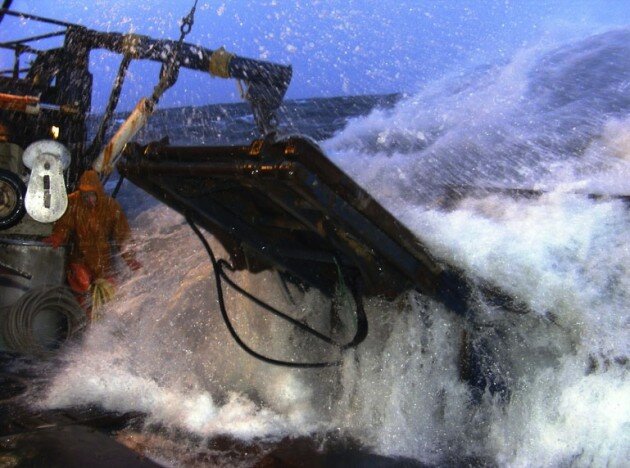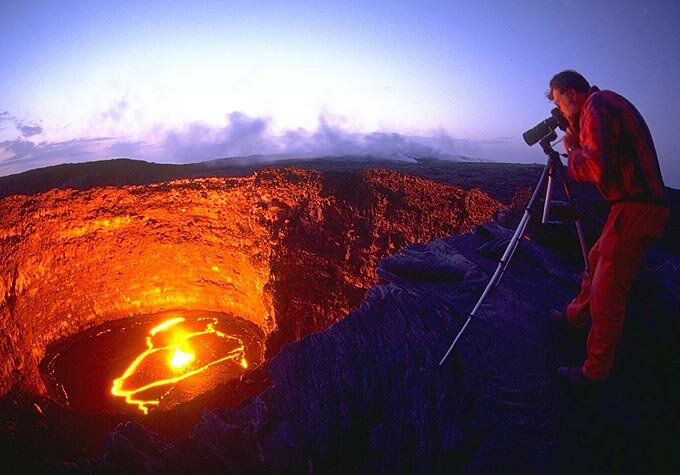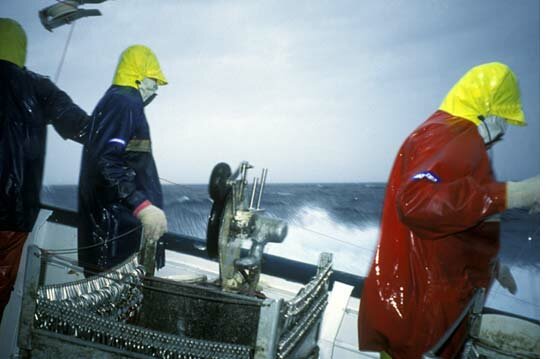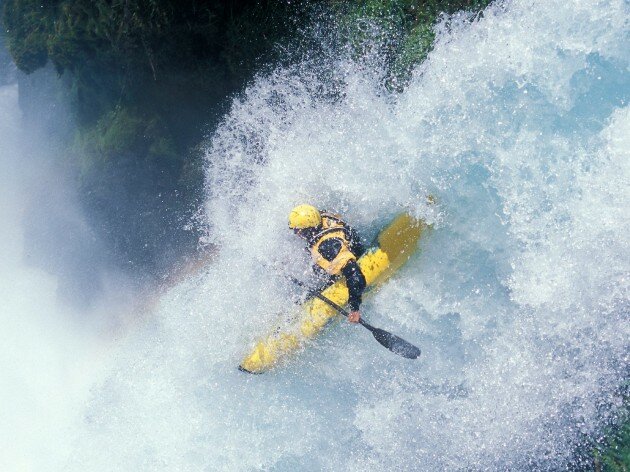When the time comes to choose a college major, students consider a variety of factors, including income potential, difficulty, and, indeed, their aptitude and interest in the course. What should probably also be a major concern, though, is how likely your degree is to put you at risk of accident, injury and death. In light of this, we bring you the world’s ten most dangerous college degrees.
10. Volcanology
If you were trying to think of a safe pastime, exploring volcanoes and molten lava would probably not be the first thing to come to mind. A postgraduate degree in volcanology would be fascinating, but as a volcanology PhD student you might find the lava too hot to handle, given its temperature of over 1,000 °F. Your undergraduate degree in geology also requires a fair amount of time exploring mountains and quarries, with all the potential for slips and falls that that entails.
9. Chemistry
If your parents ever told you not to play with fire, imagine their panic if you choose to study chemistry. Two chemicals can be completely benign individually, but when mixed together… boom! While there are a raft of rules and regulations that are aimed to keep you safe in the lab, something as simple as misreading a label and adding the wrong chemical to a beaker can result in the release of noxious gas. A graduate student in Texas lost three fingers in 2010 while preparing chemicals, despite all his training and experience. And a company called Advanced Chemical Safety have declared that “most academic laboratories are unsafe venues for work or study” — so just imagine the damage you could suffer as an undergraduate.
8. Meteorology
Studying the weather might seem like a peaceful career with lots of looking out the window and studying satellite images, but the University of Manitoba decided to jazz it up a little by introducing a course in storm and tornado chasing. While this practice can furnish valuable data, most people would balk at the idea of doing anything other than hiding under a table and praying for the tornado to pass by. That’s with good reason; the deadliest tornado in US history injured over 2,000 people and killed nearly 700.
7. Microbiology
Research into microbiology provides us with valuable insight into both beneficial and harmful bacteria. Of course, these degrees can have a large laboratory-based component where you work with samples of bacteria, viruses and fungi, many of which can cause serious risk to human health. While you won’t be working with smallpox, that’s not to say you can’t be at risk from those tiny organisms you will be studying, and given that one third of the population of the world dies from infectious diseases, they must be more dangerous than they look. Best to stay safe by always listening to your instructor and making sure you wash your hands!
6. Forestry Management
You might enjoy the idea of being out in the wilderness, at one with nature and helping to manage the world’s beautiful forests, but bear in mind that you’re exposing yourself to serious risks every time you head out on a field trip. Your supervisor had better be keeping a close watch on you, because forests can be highly dangerous, especially for the inexperienced. Not only do you have to worry about falling trees, potentially dangerous vehicles and hazardous equipment, but you are surrounded by dangers that could cause you to trip, slip or otherwise batter and bruise yourself. It’s no wonder the fatality rate in the logging industry is 16 times higher than the US average.
5. Mechanical Engineering
Many mechanical engineering degrees require you to develop practical hands-on skills over the course of your studies, whether with a personal project supervised by a faculty member, or through partnership with industry. In either case, you’re dependent on good supervision and your own safety training to keep you from injury. While some projects can be pretty safe, those that require the use of welding equipment, flammable and explosive materials, and even high noise levels can result in accidents that can put a real dampener on your enthusiasm.
4. Fisheries Management
Shows such as Deadliest Catch have made the dangers inherent in this industry more obvious, but it’s not just trawlermen who are in danger. The sea is a wild and unpredictable element, and fishing vessels are full of traps for the unwary. If you’re taking a field trip or gaining some practical experience on a commercial vessel, you should watch out for trips, slips, falls, machinery and loose objects that could squash or hit you — and that’s without considering danger from the waves or weather! All told, 250 seafarers’ lives were lost at sea in 2010, although safety must be improving because the count was 684 in 2009.
3. Veterinary Medicine
As a vet student you have to spend a large part of your studies around animals. Sure, the animals may look cute, but you’re putting yourself at risk of serious injury. In 1988, 65% of vets got a major injury from an animal, and 93% of vets in one study had been bitten by a dog or cat. Add in the stress and strain of all the odd positions you get into bending down to look at dogs and reaching up horses’ behinds and it’s no wonder that around a third of vets have poor working postures. Then there’s your exposure to disease: not all pathogens stick within one species — indeed, 30% of vets will contract a disease from an animal, and as a student you’re likely to be exposed to most of them!
2. Adventure Sports
You might decide to combine education with pleasure and go for a degree in adventure sports like that offered by Garret College in Maryland. The idea of a qualification in whitewater rafting, snowboarding and extreme mountain biking might sound pretty awesome, but bear in mind the risks that you’re taking. In 2002, over 20 million sport-related injuries afflicted Americans, with snowboarding getting one of the most dangerous reputations with 3.8 injuries per thousand exposures to the sport. Alpine skiing was close behind with three per thousand, while mountain biking was one of the “safer” extreme sports with less than two injuries per thousand exposures. At least those completing a degree will have some level of supervision to help keep them safe!
1. Medicine
While medicine is a degree that you pursue in order to learn how to save lives, you can be putting your own health at risk. Quite apart from daily exposure to all the germs that your patients are coughing up when you are doing work experience in a hospital, there are more serious risks. A 2009 study found that almost six in ten of doctors surveyed had accidentally been jabbed with a needle while they were students, potentially exposing them to serious diseases such as HIV and hepatitis. The fact that doctors have one of the highest suicide rates of any profession won’t make it any more appealing, either!











